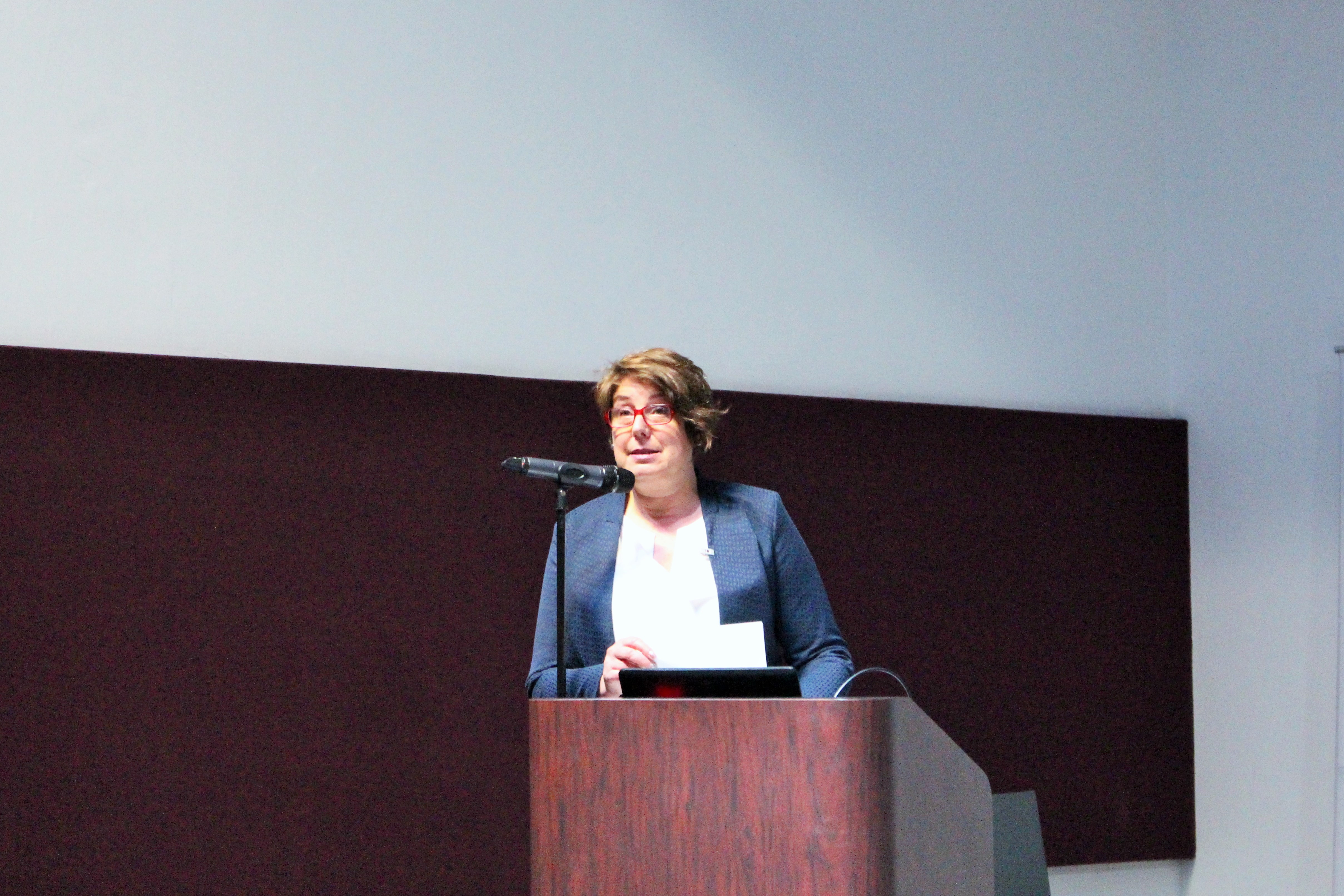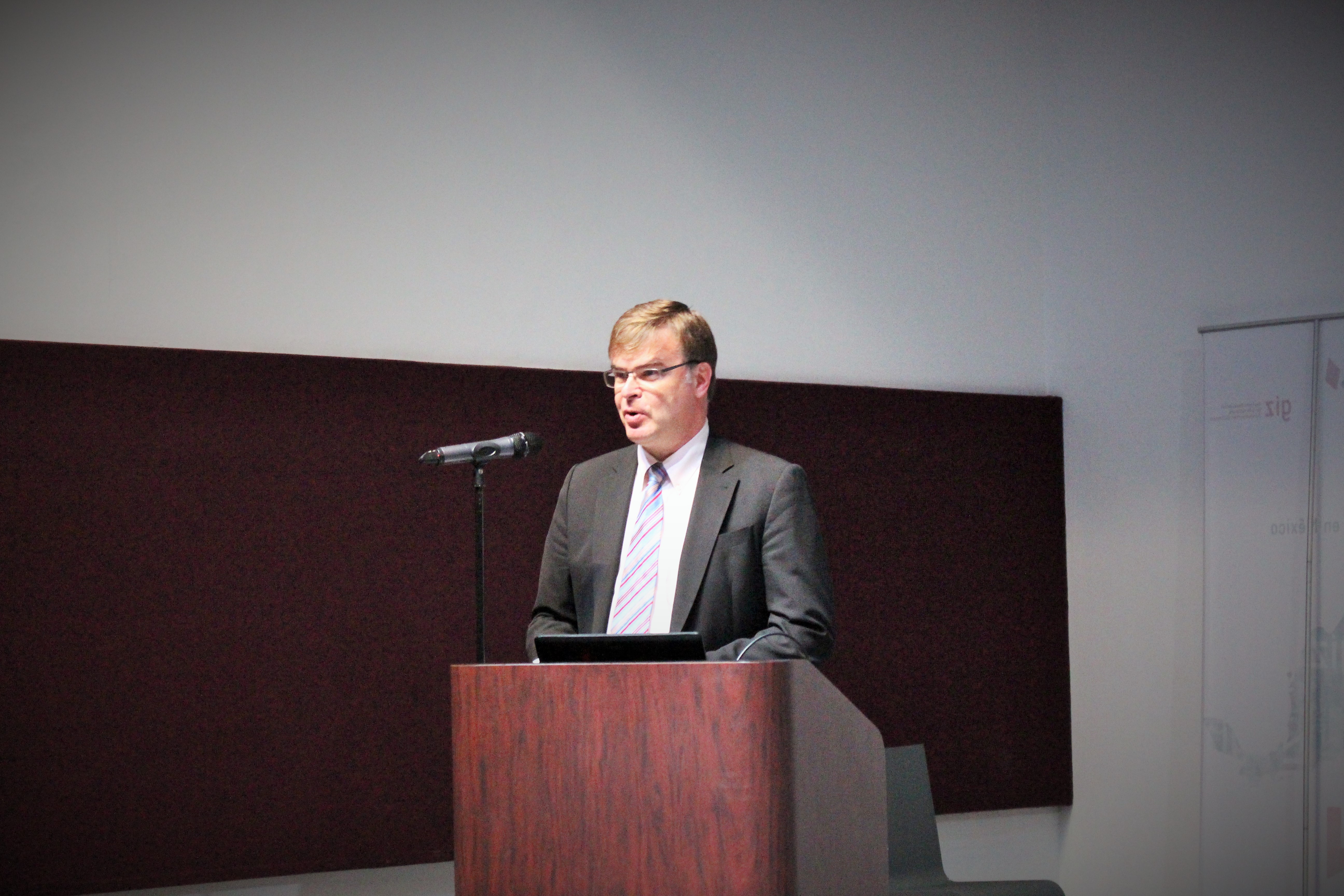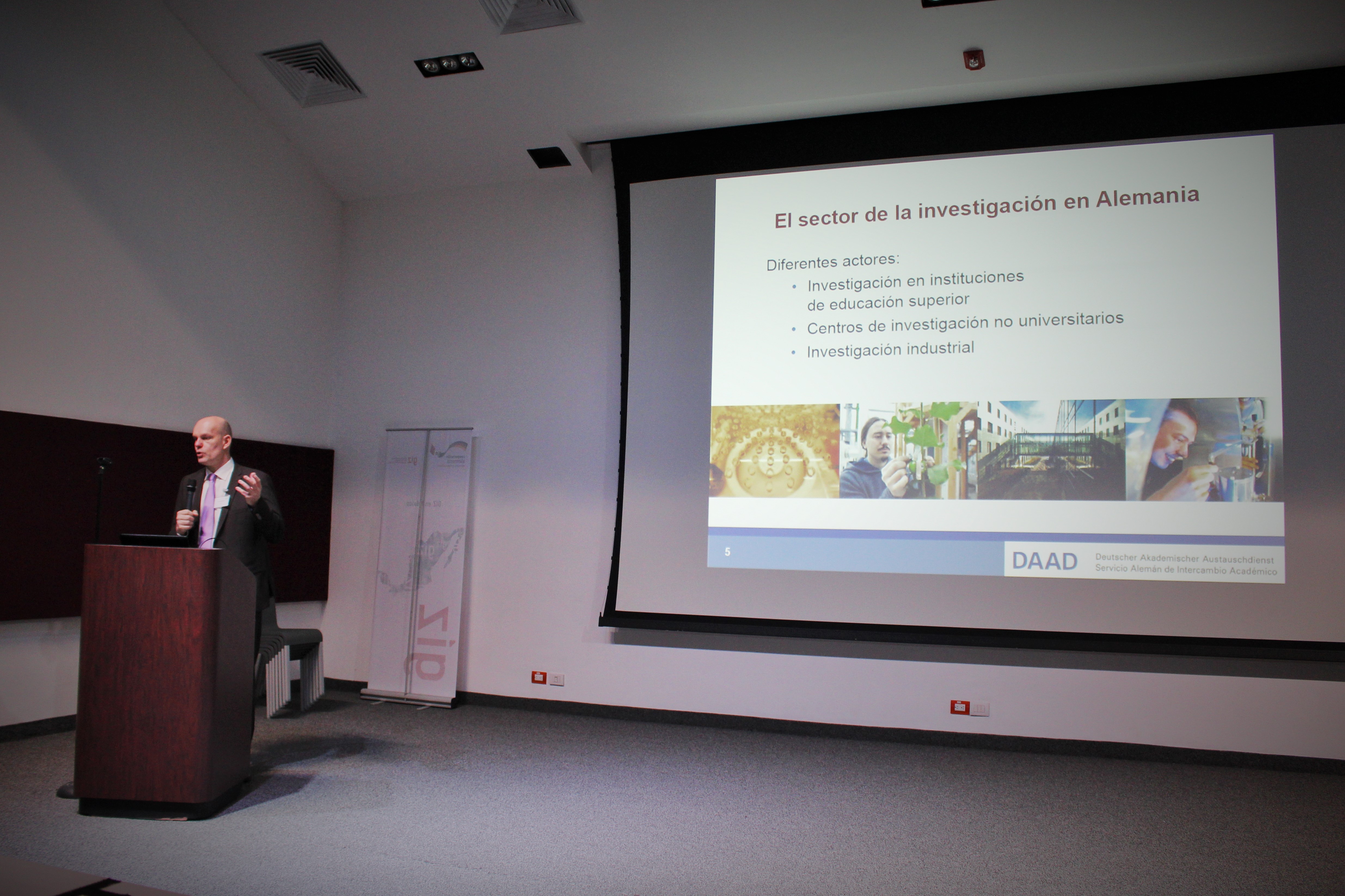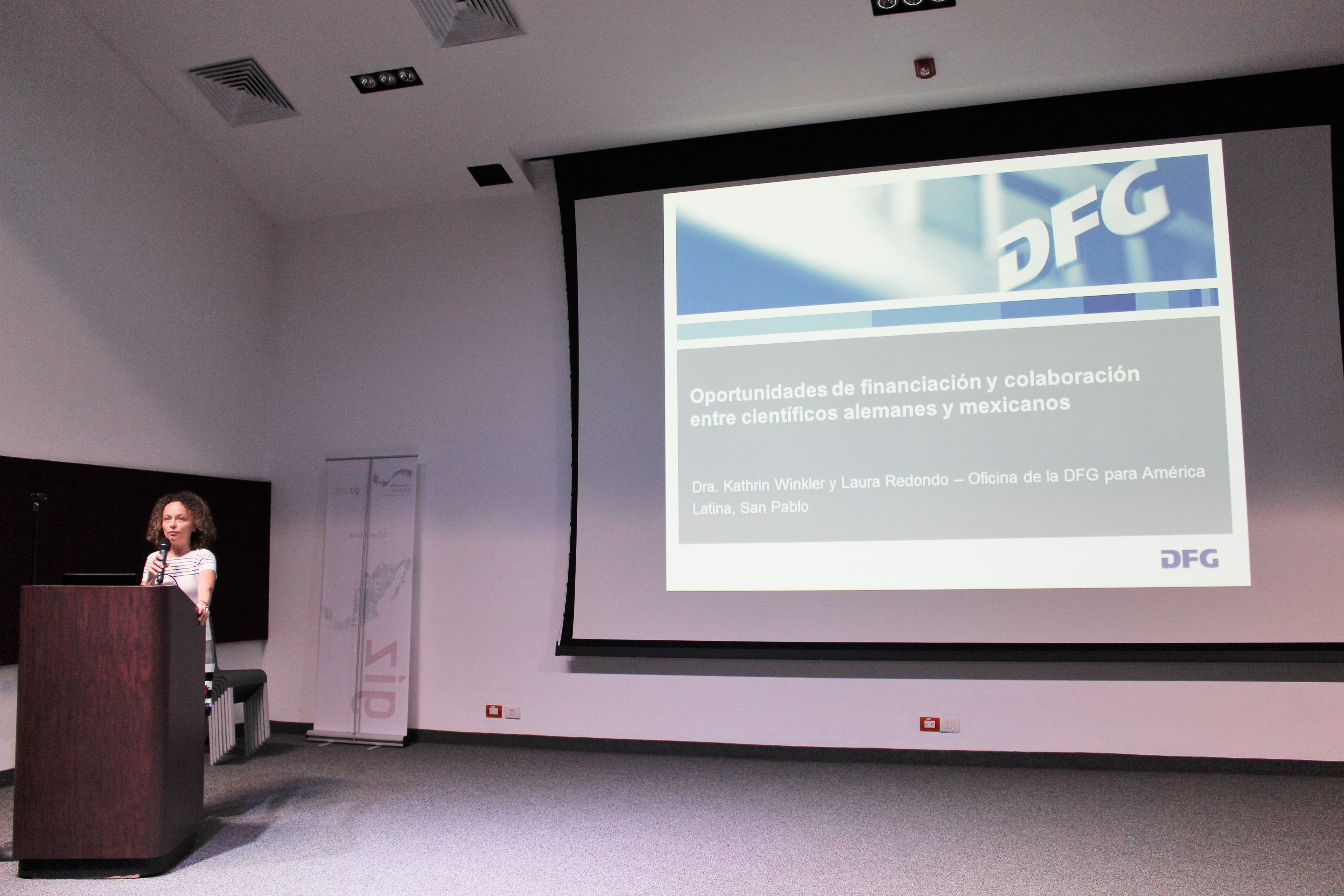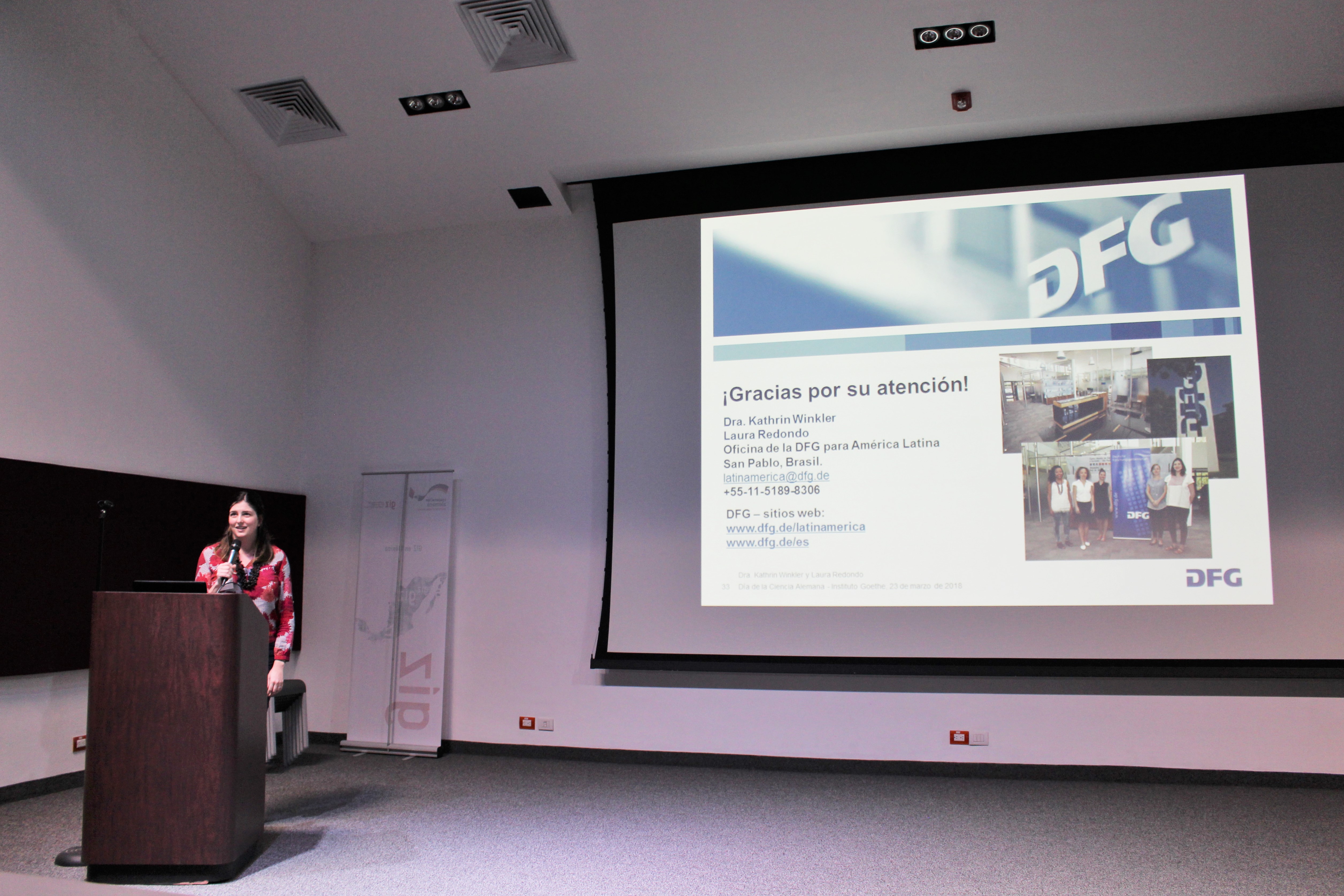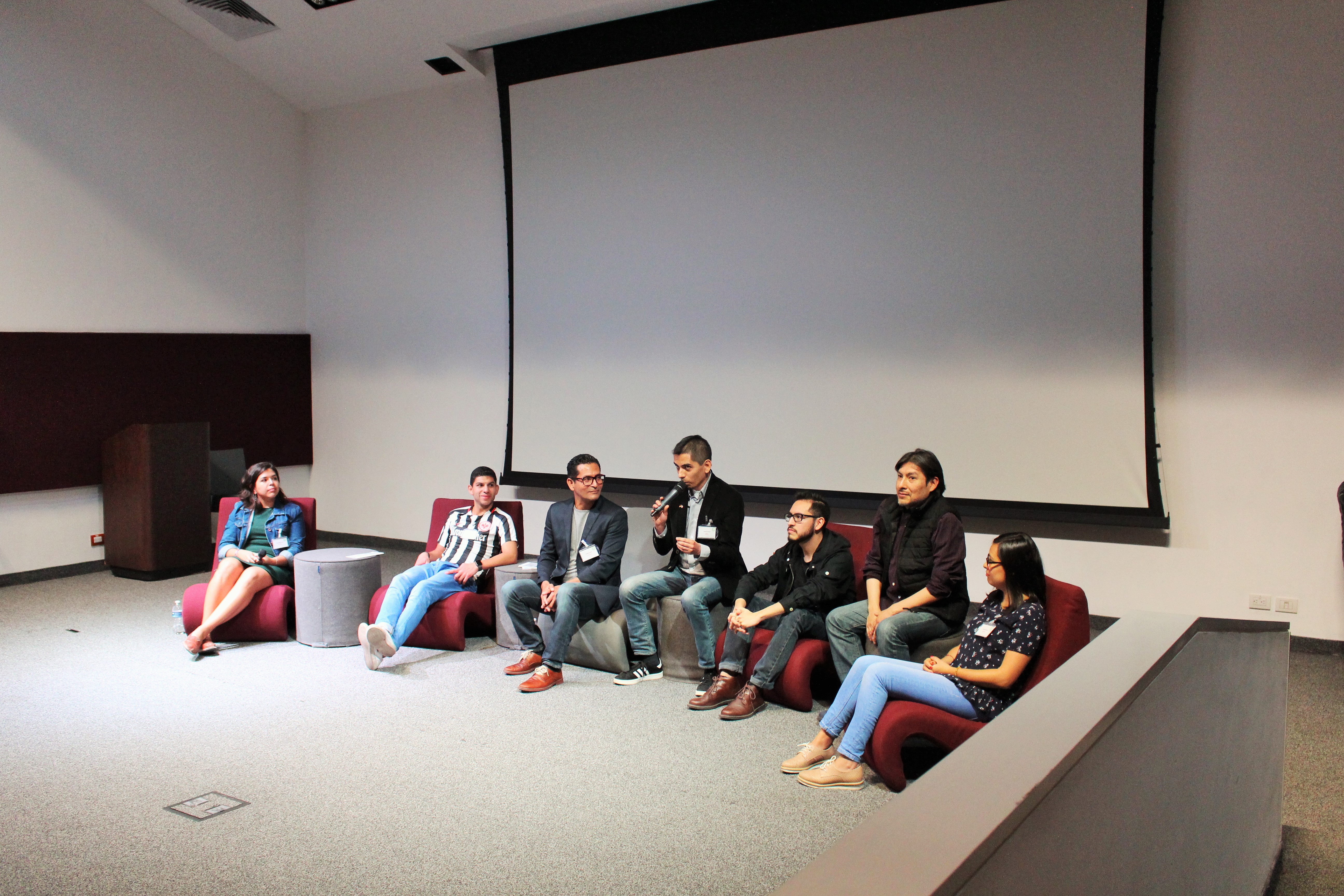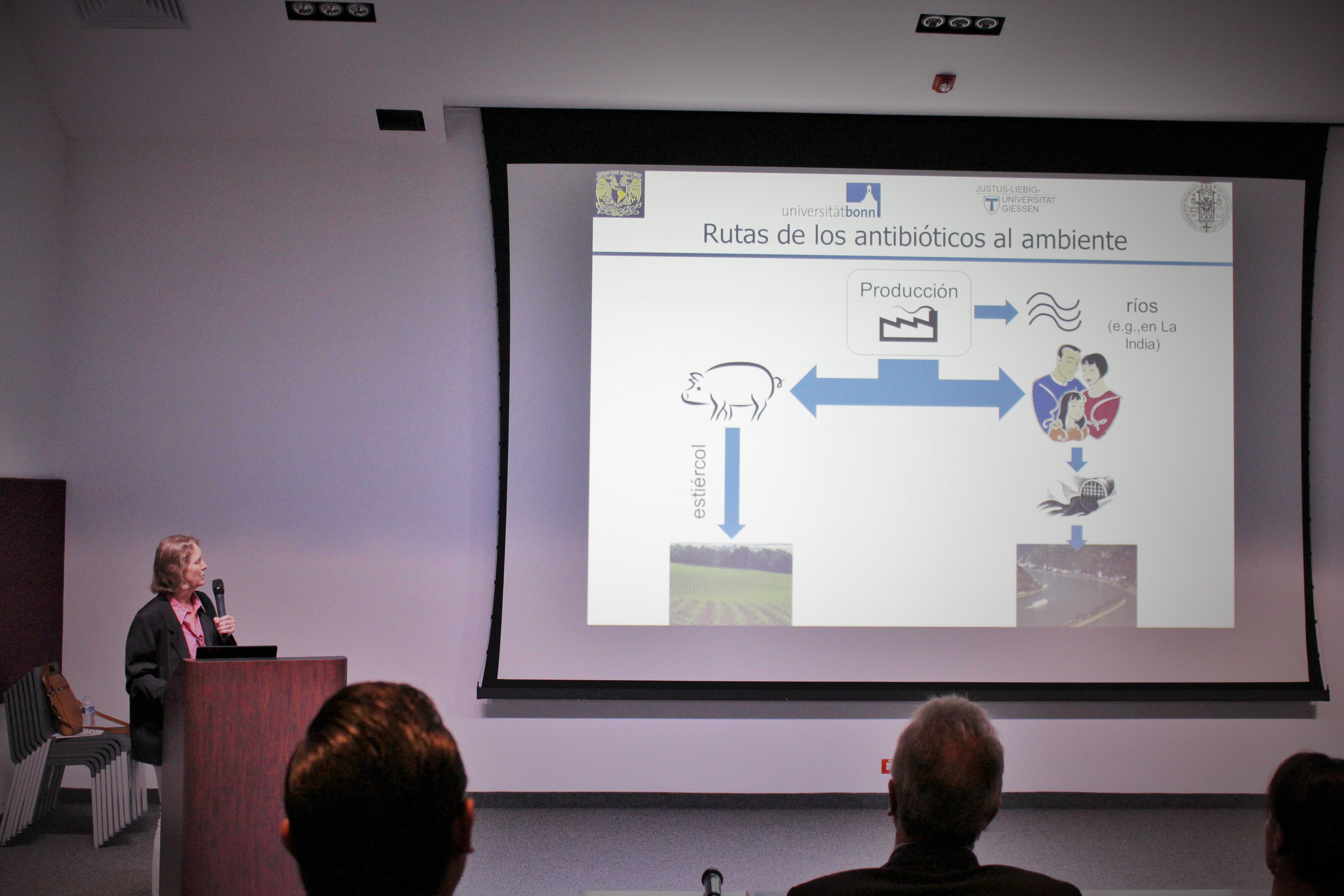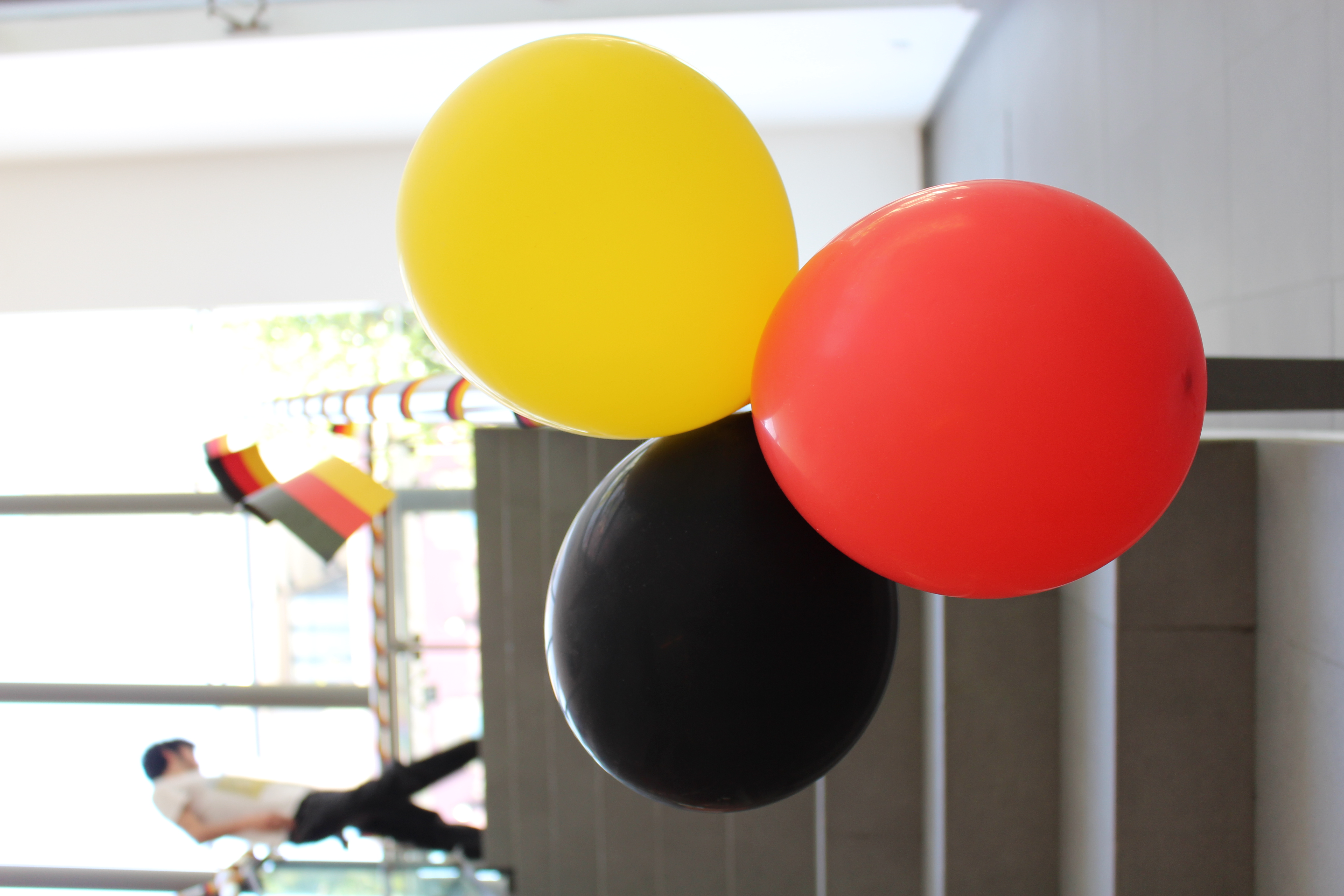DFG at German Science Day in Mexico City
(02.04.18) “Science is the best expression of diplomacy.” With these words, Ludger Siemes, a diplomat from the German Embassy in Mexico City, speaking at the opening of German Science Day on 23 March at the city’s Goethe-Institut, emphasised the importance of scientific cooperation to international relations. Organised as part of the European Union’s Science Diplomacy Week, the event was designed to raise awareness of the academic landscape and research opportunities in Germany. At the invitation of the organisers, the German Research Foundation (DFG) and other institutions delivered a series of presentations and ran an information stand that enabled closer contact with participants.
As one of the organisers, Isabel Kielian, Deputy Director of the Goethe-Institut in Mexico City, welcomed all participants…
© DFG
The Director of the DFG’s Latin America Office, Dr. Kathrin Winkler, addressed an audience of young people with a keen interest in research opportunities in Germany, explaining the DFG’s activities and goals and the current situation regarding cooperation with Mexico. She also drew attention to DFG funding programmes for international collaboration, which among other things provide funding for workshops and research visits abroad. She also explained the range of funding instruments for bilateral research projects between German and foreign researchers. The DFG provides opportunities for successful German-Mexican collaboration, for both individual initiatives and major group projects such as the ‘Entre Espacios’ (‘Between Spaces’) Research Training Group.
Established in 2009, this project brings together German institutions such as the Free University of Berlin, the Humboldt University of Berlin and the University of Potsdam with El Colegio de México (COLMEX), the Universidad Nacional Autónoma de México (UNAM) and the Centro de Investigaciones y Estudios Superiores en Antropología Social (CIESAS) to provide an international and scientifically excellent environment for doctoral training. The Research Training Group is supervised by 20 specialists in the humanities and social sciences. By the time the project is concluded in 2018, it will have enabled 63 individuals from Germany and 59 from Mexico to obtain their doctorates over a total of nine years.
Following Katrin Winkler’s presentation, Laura Redondo, officer for scientific cooperation with countries in Latin America, spoke about funding opportunities for early career researchers. For example, she mentioned positions for doctoral and postdoctoral researchers on DFG-funded research projects. These opportunities can be found on the DFG website, through the GEPRIS information system or on dedicated project websites.
Dr. Christina Siebe, DFG Liaison Scientist in Mexico and a lecturer and researcher at the Institute of Geology at UNAM, concluded the programme with a presentation on the research project which she developed together with colleagues at the University of Giessen. The study was designed to investigate whether there is a direct link between water contamination by antibiotics and increased bacterial resistance, particularly in the water that flows from Mexico City into the Mezquital Valley, where it is used for irrigation. Dr. Siebe gave an easy-to-follow introduction to the water cycle, from hospital wastewater to springs and groundwater. Samples were taken at different points in this cycle and analysed to see what they contained (antibiotics or even resistant bacterial genes). One of the main questions addressed in the project is whether water treatment contributes to a decrease or an increase in antibiotic-resistant bacteria. Dr. Siebe expressed her support for the second hypothesis, that is that water treatment has a negative impact and could favour the growth of antibiotic resistance. The topic met with a great deal of interest from the audience, who had plenty of questions for the speaker.
“Dr. Siebe’s presentation was the highlight of the event,” said Jakob Haselhuber, adviser on scientific cooperation at the German Embassy, which organised the event. In addition to the DFG, the German Academic Exchange Service (DAAD), the Alexander von Humboldt Foundation (AvH) and the Deutsche Gesellschaft für Internationale Zusammenarbeit (GIZ) also actively participated in the programme.
